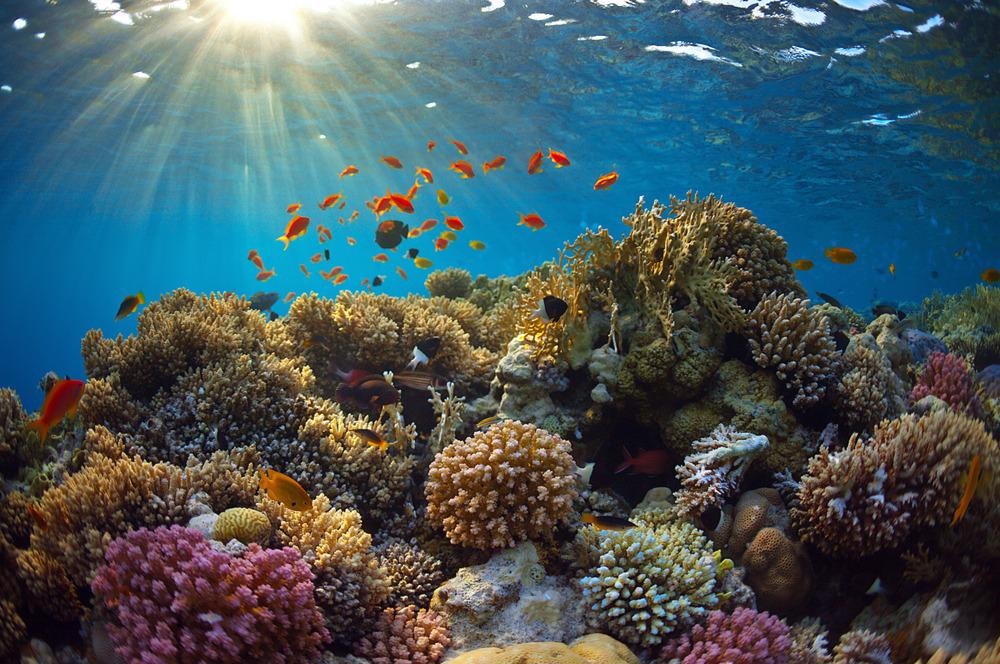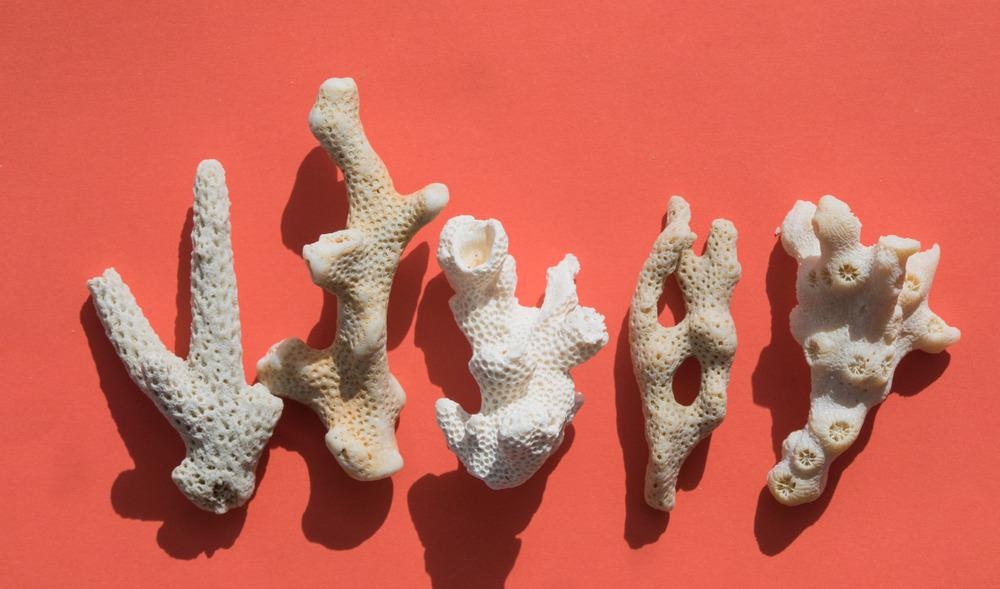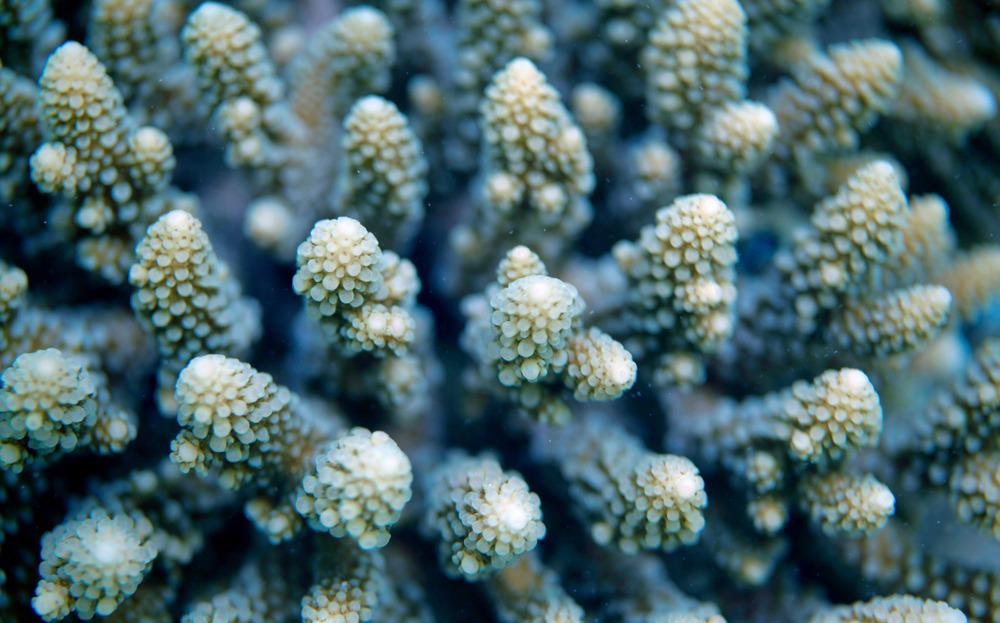For the past several years, the devastating impacts of climate change have become more apparent – cyclones Idai and Kenneth caused the deaths of more than 1000 people across Zimbabwe, Malawi, and Mozambique in Southern Africa in 2019; the 2019-2020 Australian bushfires burned through more than 10 million hectors and razed entire communities to ground, and the East African droughts and food shortages have affected more than 15 million people. Many more extreme climate catastrophes are continuing to occur. Although we are only witnessing these disasters now, one of the earliest signs of climate change, the destruction of coral reef ecosystems, has been going on for decades.

Image Credit: Borisoff/Shutterstock.com
Coral Bleaching and the Great Barrier Reef
Coral consists of a symbiotic relationship between algae and marine invertebrates – the coral creatures are called polyps which are soft-bodied. They have tentacle-like structures for capturing food and excreting calcium carbonate to create a hard exoskeleton. The microscopic algae reside safely within the coral’s tissues, producing oxygen, removing waste and providing food for the coral to survive.
Coral reefs are one of the most sensitive living structures that are directly affected by global warming through the rising acidity of water when excess atmospheric carbon dioxide is dissolved into it, and through the warming of the seas. Studies have predicted that a temperature increase of just 0.5 °C will destroy around 98% of coral reefs worldwide.
What is Coral Bleaching?
Coral bleaching is when coral, under stress from their environment, expel the algae living with them, leaving behind the transparent white exoskeleton.

Image Credit: Elena Sherengovskaya/Shutterstock.com
Coral bleaching is not always fatal to the coral as it can recover to re-house algae but does increase the chances of the coral starving and fatality.
The Great Barrier Reef is one of the most documented cases of repeated coral bleaching and restoration; most of the restoration is actively carried out by conservationists.
The Great Barrier Reef has experienced cases of massive bleaching in 2002, 2006, 2008 to 2011, 2016, 2017, and its most widespread bleaching in 2020, where around 2300 km of the reef was severely bleached.
How are Coral Reefs Being Preserved?
There are a few techniques that have been employed by organizations such as the Great Barrier Reef Foundation that have worked tirelessly to restore these ecosystems:
Assisted natural adaptation: strengthening coral tolerance by artificially selecting desirable traits in coral and introducing them to the current reefs.
Enhanced coral breeding: Gene editing the coral to increase resilience and chances of survival under stress.
Biocontrol: the population of the Crown-of-thorns starfish is monitored and managed as their large numbers eat coral to a destructive amount.
Field Treatments: probiotics and medicines are used to help the algae microbial community survive during the breeding process and times of environmental stress.
What is Super Coral?
Referring to coral that can survive in conditions where normal coral cannot, ‘super coral’ can tolerate extreme and rapid changes in its environment.
However, referring to a species of coral as ‘super’ can be misleading as the definition ‘super coral’ is determined by a range of criteria that involves the size of the coral in a given reef, its spread, and its resilience to a hazard.
Factors such as how extreme a hazard is or whether the coral is compromising something else to gain that resilience must also be carefully considered to configure how ‘super’ or robust a coral is.
A 2019 study by Emma Camp et al. looked at coral reef populations supported by the Mangrove lagoon of the Great Barrier Reef. It showed a colony of Acropora millepora to be “thriving under extreme low pH, low oxygen and highly variable temperatures”.

In a 2019 study, an Acropora millepora colony was found to be thriving in extreme conditions. Image Credit: Agarianna76/Shutterstock.com
Within the research, significant ‘super’ coral colonies were found under two mangrove lagoons housing 34 species living in extreme conditions of more acidic water that contained little oxygen. These corals were also able to survive varied ranges of temperatures of over 7 °C, under which they were studied, including higher temperatures than which other coral are known to stress under.
This is an example of coral adapting naturally to a frequently changing environment; the unique symbiotic relationship with the micro-algae is suggested to be flexible so the coral is constantly provided with essential resources making it a lot more resilient to environmental stress and bleaching.
Further study of these species helps identify the genes that make them more tolerant and can be used in enhanced coral breeding. Some coral can be collected, grown in a nursery, and transplanted in other endangered reef areas for their restoration and longevity.
Super Coral That Can Survive Global Warming | National Geographic
Video Credit: National Geographic/YouTube.com
References and Further Reading
Great Barrier Reef Foundation. 2022. Coral Bleaching. [online] Available at: https://www.barrierreef.org/the-reef/threats/coral-bleaching [Accessed 15 February 2022].
Camp, E., Edmondson, J., Doheny, A., Rumney, J., Grima, A., Huete, A. and Suggett, D., 2019. Mangrove lagoons of the Great Barrier Reef support coral populations persisting under extreme environmental conditions. Marine Ecology Progress Series, [online] 625, pp.1-14. Available at: https://doi.org/10.3354/meps13073 [Accessed 15 February 2022].
Oxfam International. 2022. 5 natural disasters that beg for climate action | Oxfam International. [online] Available at: https://www.oxfam.org/en/5-natural-disasters-beg-climate-action [Accessed 15 February 2022].
Oceanservice.noaa.gov. 2022. Are corals animals or plants? [online] Available at: https://oceanservice.noaa.gov/facts/coral.html [Accessed 15 February 2022].
The Guardian. 2022. All coral will suffer severe bleaching when global heating hits 1.5C, study finds. [online] Available at: https://www.theguardian.com/environment/2022/feb/01/all-coral-will-suffer-severe-bleaching-when-global-heating-hits-15c-study-finds [Accessed 15 February 2022].
Camp, E., 2019. Meet the super corals that can handle acid, heat and suffocation. [online] The Conversation. Available at: https://theconversation.com/meet-the-super-corals-that-can-handle-acid-heat-and-suffocation-122637. [Accessed 15 February 2022].
Disclaimer: The views expressed here are those of the author expressed in their private capacity and do not necessarily represent the views of AZoM.com Limited T/A AZoNetwork the owner and operator of this website. This disclaimer forms part of the Terms and conditions of use of this website.